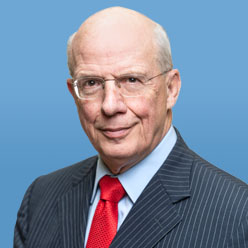On Oct. 13, the Department of State rolled out new regulations targeted at think tanks. With an eye to the malign activities of foreign governments like China and Russia that have sought to exploit America’s openness, Secretary Mike Pompeo indicated that, moving forward, his agency would request funding disclosures from think tanks interested in working with Foggy Bottom. While such disclosures wouldn’t be mandatory, Pompeo made clear that they would make a difference. In his words, government officials would “be mindful of whether disclosure has been made and of specific funding sources that are disclosed when determining whether and how to engage.”
This step is a long-overdue recognition of the pervasive, and often pernicious, influence of foreign money in America’s policymaking process. Until now, much of this concern has focused on academia and advocacy. In a recent report, the Department of Education uncovered a staggering $6.5 billion in unreported donations from foreign governments to America’s institutes of higher education. According to its report, "there is very real reason for concern that foreign money buys influence or control over teaching and research.”
The study highlighted a crucial point: The openness of the American system is a strength to be celebrated, but also a vulnerability to be defended. Foreign governments often enter U.S. civil society with the intent of shaping our academic institutes or political decisions to advance their own interests. In such instances, sunlight is the best disinfectant.
But this principle also applies to donations and grants, particularly with think tanks. At their best, these institutions catalyze public problems into policy solutions and equip government officials with creative ideas to secure the common good. In this way, the function of think tanks is categorically different from that of academia. Whereas the former educates students, the primary role of think tanks is to educate policymakers. Their function is public, not private, and their focus is policy, not politics.
But think tanks are susceptible to the same risks of foreign exploitation. At their worst, think tanks can serve as a platform for foreign interests to usurp America's policy process for their own interests — often at the expense of the American people.
In 2014, a New York Times investigation uncovered that roughly 64 foreign governments, entities, and officials contributed at least $92 million over four years to 28 of America’s premier think tanks.
This January, the Center for International Policy released a follow-on report with some alarming findings: From 2014 to 2018, 80 countries and organizations had donated in excess of $174 million to America’s top 50 policy institutes. Of these, only two disclose exact itemized donations from sources abroad.
In other words, today, more foreign entities are giving more money to more think tanks.
To be sure, foreign influence does not necessarily translate into malign interference. After all, the foreign policy interests of the United States and our allies and partners often align and overlap. But what of the instances where they don’t? Whether that gap is negligible or wide, both the U.S. government and American citizens ought to know.
Absent proper transparency standards, think tanks can unwittingly launder the ideas of foreign entities, presenting them as home-grown solutions for the American people.
It is entirely appropriate for the State Department to shine a light on this problem. Congress, too, has a role to play here — most immediately by removing the “personal capacity” exemption that currently allows think tank experts to testify before congressional committees without their institutional affiliation, thus circumventing funding disclosures.
Ultimately, the issue of transparency is inextricably linked with integrity, not only for think tanks, but for our nation’s public policies. This is why the organization I head, the American Foreign Policy Council, accepts donations only from U.S. sources.
American interests should be supported by American money. If a think tank can’t garner domestic financial support for an idea, it’s a good bet that the idea does not serve the American people.
Herman Pirchner, Jr. is the founding president of the American Foreign Policy Council in Washington, D.C.
